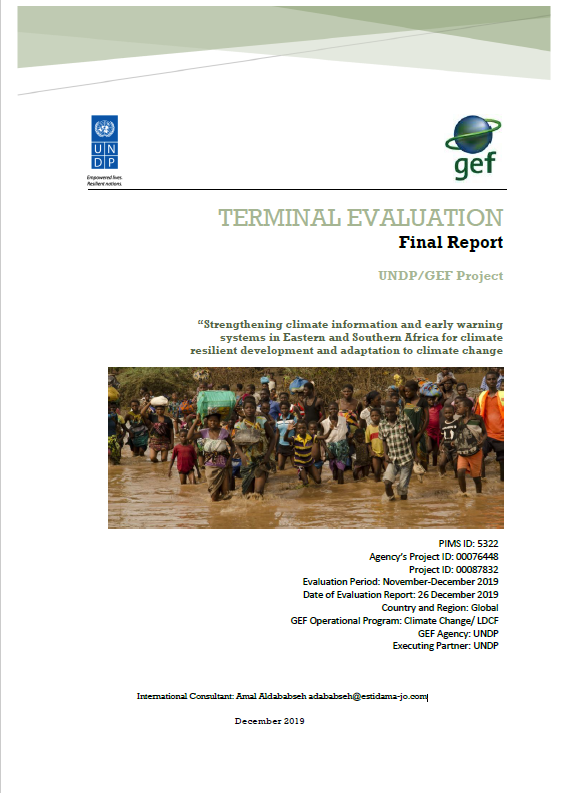
Terminal Evaluation: Strengthening CI/EWS in Africa (PIMS 5322)
Completedon 31 Jan, 2020
Evaluation Plan
Planned End Date
Dec 2019
Evaluation Type
Project
Management Response
Yes
Evaluation Budget
$37,000
Evaluation Title
Terminal Evaluation: Strengthening CI/EWS in Africa (PIMS 5322)
Plan Period
Status
Completed
Type
Project
Plan Date
31 Dec, 2019
Completion Date
31 Jan, 2020
Budget
$37,000
Expenditure
$12,000
Source of Funding
LDCF
Management Response
Yes
Quality Assessment
No
Joint Programme
No
Joint Evaluation
No
GEF Evaluation
Yes
Expand
Countries
Bureau for Policy and Programme Support
Plan Period
Status
Completed
Type
Project
Management Response
Yes
Plan Date
31 Dec, 2019
Quality Assessment
No
Completion Date
31 Jan, 2020
Joint Programme
No
Joint Evaluation
No
Budget
$37,000
GEF Evaluation
Yes
Expand
Expenditure
$12,000
Source of Funding
LDCF
Countries
Bureau for Policy and Programme Support
Output 2.1.1 Low emission and climate resilient objectives addressed in national, sub-national and sectoral development plans and policies to promote economic diversification and green growth
1: Others


